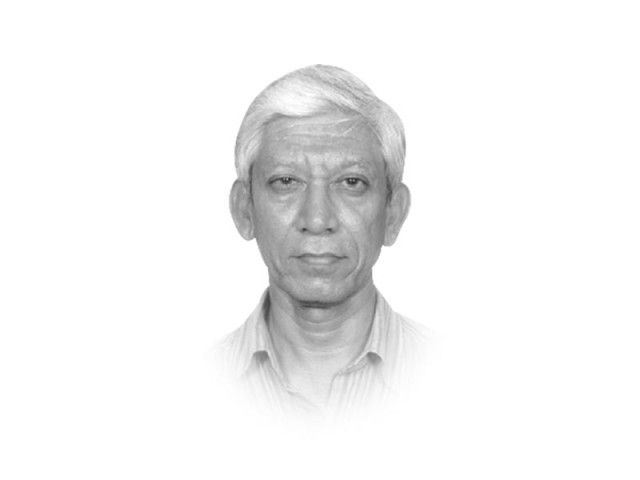Towards a jihadi politics – III
Muslim communities living in northern subcontinent came together as a political entity, including non-shurafa castes.

Syed Ahmed said, “Rai Bareli.”
Shah Sahib asked, “Which qaum do you belong to?”
“To Sadat [plural of Syed] of that region.”
“Do you happen to know Syed Abu Saeed and Syed Nauman there?”
“The former was my real nana [maternal grandfather] and the latter my real chacha [paternal uncle].”
On hearing which, Shah Sahib embraced the young Syed once again with warm affection and asked, “What made you undertake this long and hard journey?”
Syed Ahmad replied respectfully, “I have a wish to reach Allah through your sacred guidance.”
Shah Abdul Aziz said, “With God’s grace, you’ll duly receive your paternal and maternal inheritance.”
The above conversation shows how, in the caste-ridden society of the subcontinent, knowledge, like land and gold, had become a “paternal and maternal inheritance”, altough it was supposed to be a duty of every Muslim man and woman to acquire, according to a much-quoted Islamic text which grew more and more popular as people of lower origin began to aspire for education during the colonial era. What must not be ignored is the fact, amply demonstrated by the above conversation as well, that the local, lived Islam had incorporated in itself the concept of qaum, which was later to be generally replaced by biradri, and which meant what in the Hindu society is designated as jati, or caste.
Caste, in the words of BR Ambedkar, is “a system of graded inequality” which decrees that a person must stick to his family’s profession, be it war, land ownership, knowledge, farming or artisanship. It must also be remembered that the powerful, ruling elites who dealt in war, land ownership and knowledge, were a miniscule minority among Muslims, and most Muslims were local converts from middle and lower castes of the Hindu society and were farmers, artisans and so on.
In this background, when Syed Ahmad decided to raise a lashkar comprising common Muslims, he proceeded very cautiously. Since these commoners, or awam (plural of aam) — as against khawas (plural of khas) or upper castes (who liked to called themselves shurafa) — had converted from middle and lower Hindu castes, their ways had to be duly ‘reformed’ before they could be allowed to join the lashkar for the purpose of waging jihad. This process of ‘reform’ or eradication of Hinduana — i.e. local — practices and rituals had actually been started by the Syed’s younger companion Shah Ismail with his book Taqwiyyatul Iman (literally, ‘consolidation of the faith’) a few years ago. It is interesting to note that the local rituals and practices were condemned as Hinduana while launching this ‘reform’ effort based entirely on the Hindu concept of caste divisions. The jihad led by Syed Ahmad and Shah Ismail began with this effort to cleanse the participants of the local colour.
The emphasis on the zawahir or the externalities of religion was significant in several ways. One, Muslim communities living in the northern subcontinent were, through this process, being brought together as a political entity which had to include the members of the non-shurafa castes who had started changing their traditional, ancestral professions using the opportunities provided by the colonial administration. Since these were the people who had acquired the means to provide the replacement for the patronage that the maulvis had all but lost, the precondition of cleansing oneself of local practices was doubly useful. On the one hand, it instilled in the ‘new entrants’ a proper sense of inadequacy and inferiority due to their low birth and, on the other, this sense could be put to good use not only in jihadi efforts but also as a force against other competing ‘reform’ movements and sects.
Another reason for this emphasis on the correctness of the zawahir was to clarify what the participants and supporters of jihad should expect as result of jihad. What could reasonably be expected of it was explained by Syed Ahmad as follows:
“Just as rain brings with itself a bounty of benefits for plants, animals and humans, jihad is beneficial to all. There is the general benefit that reaches in equal measure not only the faithful, the dutiful and the pious as well as the rebellious, the faithless and the hypocrites (munafiqeen) but all creatures, djinns and humans, plants and animals alike. Another is the special benefit that blesses certain groups and individuals in one manner and certain other groups and individuals in another manner. The detail of the general benefit of jihad is — and this is testified by experience — that as a result of fair conduct of government functionaries, honesty of business people, generosity and charity of the rich and good-natured behaviour of common people, divine benevolence is showered on humanity; it rains at the correct time, produce is abundant, crops are good, trade prospers, evil happenings are averted, wealth increases and grows, the persons of high knowledge and perfection (ahle hunar aur arbabe kamal) are produced in plenty. The power and glory of the true religion (deene haq) the ascendancy of pious (deendar) rulers, the strengthening of their rule in the adjoining regions (mumalik), the power of the armies of the people of the right faith (millate haq) and the general propagation of religious commandments (ahkame shari’a) brings about a bounty of good and beneficial consequences. In the matter of the divine benevolence, compare today’s Hindustan, a large part of which has become land of war (darul harb) with Rome and Turkey, or even with the Hindustan of 200–300 years ago: How abundant the divine benevolence was then, and how numerous the saintly men (auliae azaam) and religious scholars (ulamae karaam) were.”
(To be concluded)
Published in The Express Tribune, July 30th, 2011.

















COMMENTS
Comments are moderated and generally will be posted if they are on-topic and not abusive.
For more information, please see our Comments FAQ